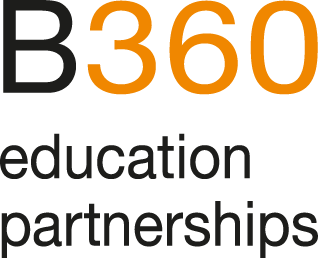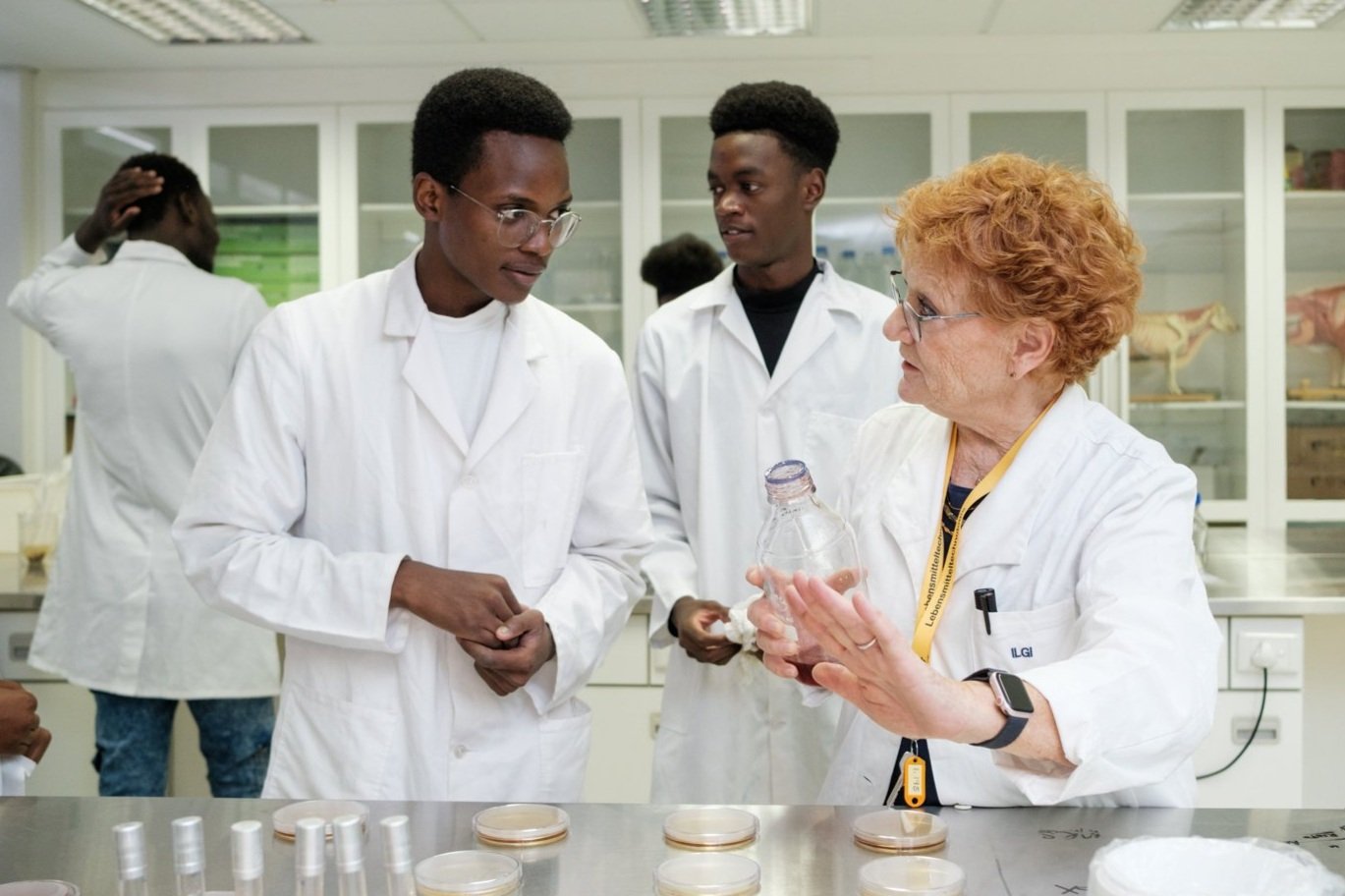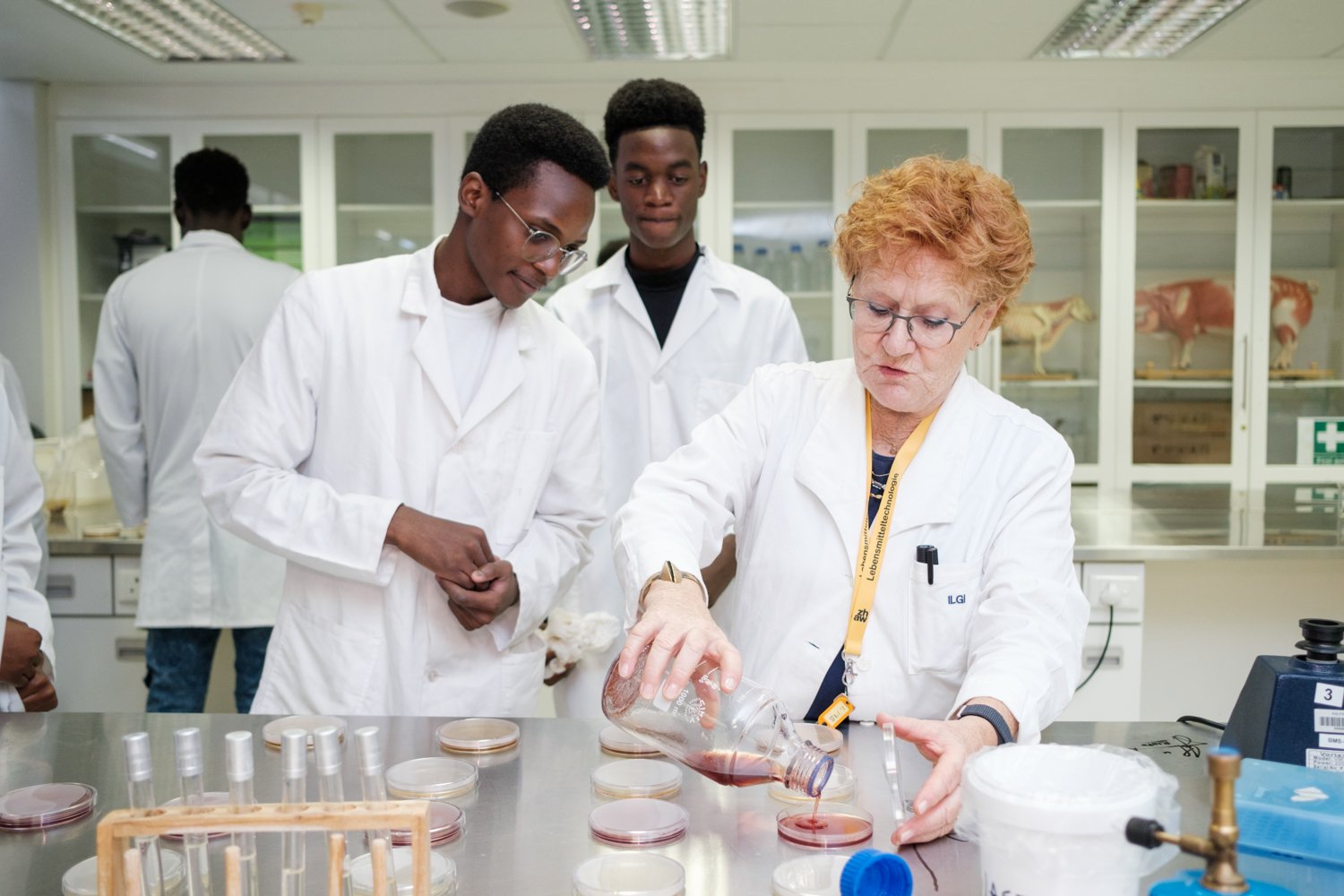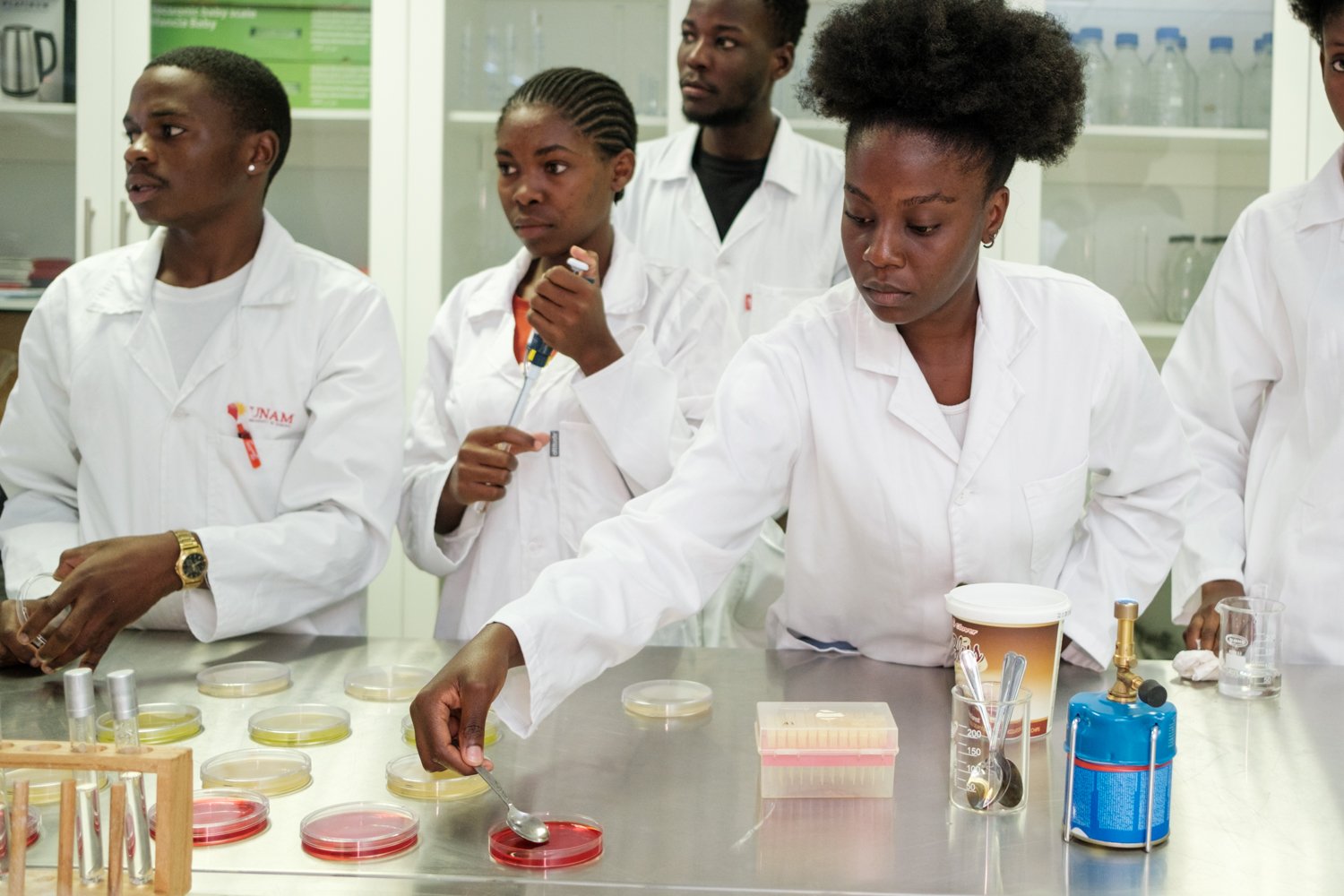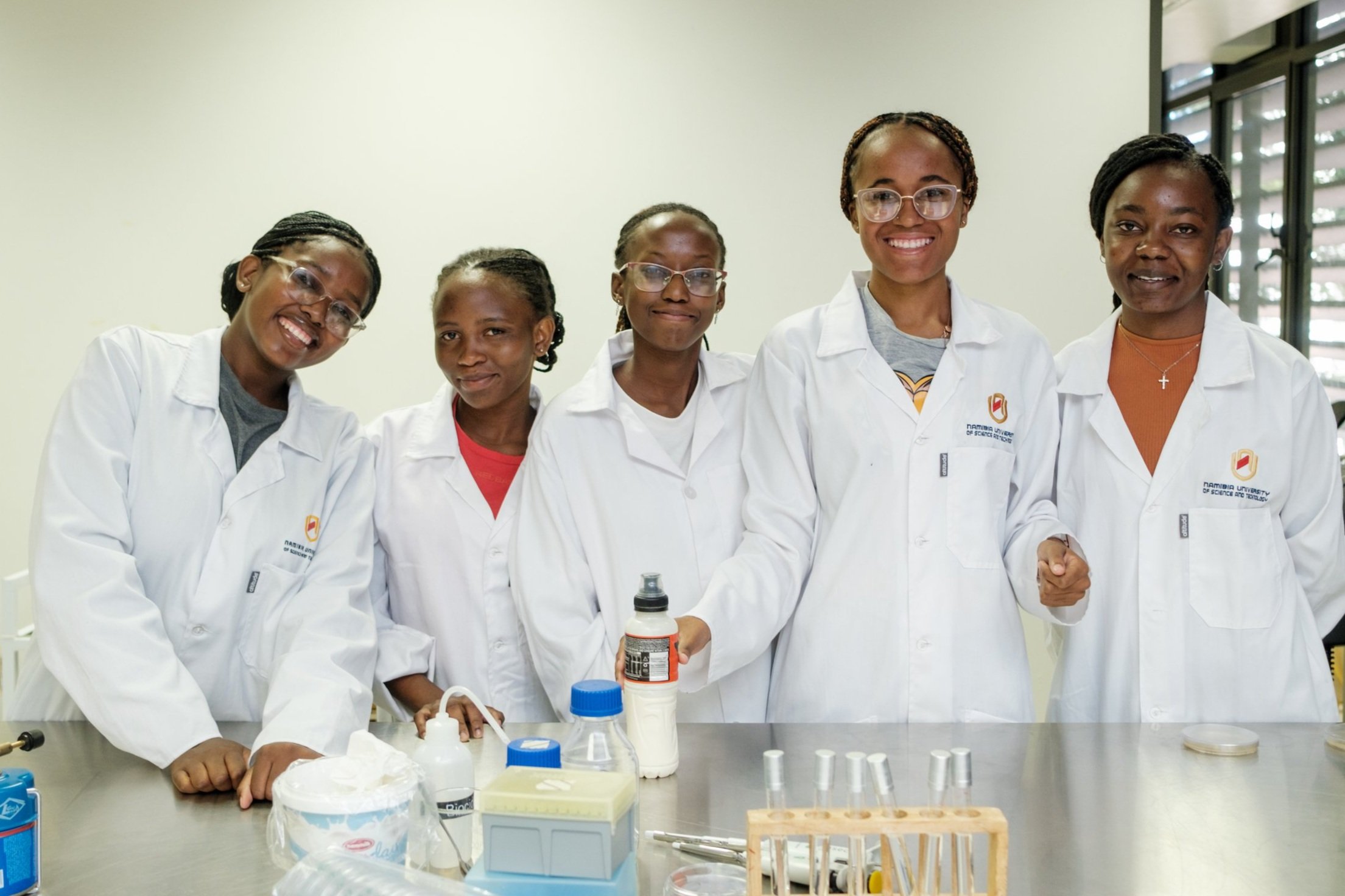Prof Dr Corinne Gantenbein-Demarchi
Professor in Food Microbiology and Food Safety (retired)
B360 Advisory Board Member
Department of Preventative Health Sciences,
Namibia University of Science and Technology
February 16 - March 16, 2024
In anticipation of my 7th assignment in Namibia at the NUST, I started my 3-week project with the Environmental Health students (EHS) of the Health Science Department. Once more, my goal was to spark students' interest in food microbiology and emphasize the critical significance of food safety. Students were tasked with collaborating in groups to assess a traditional dish for potential health risks and suggest improvements in its preparation, storage, and handling.
This year, the project has gained special importance following the tragic food poisoning cases in the north of Namibia, where several family members died after consuming potentially poisonous traditional meals
Cooperation with academic staff from NUST
The collaboration between our organization B360 and the Namibian University of Science and Technology (NUST) staff and lecturers has been a cornerstone of our success for many years. The relationship with the colleagues from NUST is built on mutual trust. We have fostered a culture of openness encouraging dialogue, feedback, and constructive criticism.
A significant surprise for me was that over 50 students were waiting for me - almost twice as many as in previous years. The openness of the local academic staff to improvements as well as the implementation of creative solutions facilitated effective problem-solving, mainly for the work in the laboratory. In summary, I believe that the three weeks were once again a success for the students, my colleagues at NUST and myself.
Collaboration with students from EHS
The Food Safety Project, a central topic of the three weeks is an initiative aimed at raising awareness and addressing food safety issues related to local food habits among students. Considering the recent food poisoning cases in the north of Namibia, students have focused their efforts on understanding the traditional food habits prevalent in their communities. This includes identifying common dishes, cooking methods, ingredients, and potential food safety risks associated with these practices. Engaging in practical exercises in the lab alongside theoretical learning is crucial for cultivating a positive and enriching rapport with students. Seeing the enthusiasm of the students during their investigations in the lab is certainly one of the highlights of my work. Practical training in this area gives students a hands-on understanding of the subject, bridging theory with real-world application.
Impact and win-win
The exchange of knowledge and experiences between students and lecturers created a mutually enriching environment, fostering dynamic learning opportunities. It was inspiring to witness the passion and determination of Namibian youth as they pursued education as a means of empowerment. Through the B360 education partnership, we are committed to supporting their educational journey, recognizing it as a vital step towards unlocking their full potential.
Personal message and expectations
Although our partnership may face challenges, its benefits are significant. Witnessing the life-changing effects of education on young people for more than 30 years in my professional career has reinforced my belief in its true value for “my Namibian students” as well.
I want to thank everyone involved in the B360 education partnership for their hard work and dedication. Working with my colleagues at NUST is a privilege, and I hope we can make a positive impact on the students together. I wish to keep working closely with B360 and NUST, with the support of my colleagues from ZHAW in Switzerland. This way, I can continue to help EHS students and NUST staff, making a positive impact on our future efforts.
